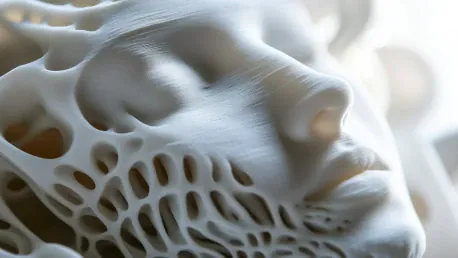Materialise, a global leader in 3D printing software and services, is making significant strides in enhancing customization in 3D printing through substantial software updates and strategic collaborations. The company’s efforts aim to transition 3D printing technology from purely innovative to practically applicable in industrial manufacturing. By providing users with the tools and flexibility needed to adapt 3D printing technology to their specific manufacturing needs, Materialise is positioning itself at the forefront of this transformative shift.
Enhancing Customization with Magics Software Updates
Materialise has introduced key updates to its Magics software, which is recognized as a premier tool for data and build preparation. One of the most notable updates is the release of the Software Development Kit (SDK) for Magics, allowing users to develop custom workflows using Python and C++ scripts. This capability is particularly significant as it enables manufacturers to optimize parameters such as quality and printing time, catering to their unique production requirements.
The ability to create tailored workflows presents a substantial advantage for manufacturers, providing the vital flexibility required to adapt 3D printing technology to specific industrial applications. In addition to this, the Magics software now supports the seamless import of implicit design files, further enhancing its overall functionality and user experience. These comprehensive updates underscore Materialise’s commitment to offering robust solutions that meet the diverse needs of its users, allowing for more precise and impactful manufacturing results.
Strategic Collaborations for Sustainability
Materialise’s dedication to sustainability is evident through its recent partnership with HP, a leading technology company. This collaboration aims to reduce CO₂ emissions by utilizing carbon-reduced PA 12 materials in 3D printing. The company’s transition to renewable electricity across its production sites has already resulted in a reduction of over 4,000 tonnes of CO₂ annually. The extended use of carbon-reduced PA 12 materials is projected to further decrease their environmental impact by over 700 tonnes each year.
This partnership with HP highlights Materialise’s commitment to responsible manufacturing practices, setting a standard for sustainability within the industry. By focusing on the use of carbon-reduced materials, Materialise isn’t just reducing its environmental footprint but also advocating for more sustainable manufacturing processes. Such initiatives are a significant step toward more environmentally friendly production methods, illustrating the company’s dedication to integrating green practices into its core operations.
Integration of Additive Manufacturing into Production Lines
Moving beyond standalone innovations, Materialise is making substantial strides in integrating additive manufacturing into production lines. This integration facilitates mass customization and end-use production across various sectors, such as MedTech, aerospace, and consumer goods. To support this effort, Materialise has launched the CO-AM platform, a cloud-based software solution designed to manage and optimize the entire additive manufacturing process. The CO-AM platform offers tools for planning, scheduling, and monitoring production, thus providing a centralized solution for overseeing additive manufacturing operations.
The CO-AM platform exemplifies Materialise’s commitment to delivering comprehensive solutions for industrial 3D printing. By centralizing the management of the additive manufacturing process, the company enables manufacturers to streamline their workflows and improve overall efficiency. This integration of additive manufacturing into production lines marks a critical step in transitioning from technological innovation to practical application, thereby enhancing the operational capabilities of businesses across various industries.
Innovations from Other Industry Players
The 3D printing industry continues to evolve, with other companies also introducing groundbreaking innovations. In 2024, Roboze, a metal 3D printing company, launched its SlizeR software to enhance additive manufacturing efficiency and quality. This software aims to optimize production workflows by reducing transition times from 3D models to R-code, improving print quality, and minimizing material waste. By addressing these crucial aspects, SlizeR contributes significantly to the advancement of additive manufacturing.
Additionally, Belgian 3D printing service provider 3iD became the first to adopt AMIS Pro software for HP Multi Jet Fusion (MJF) 3D printers in early 2024. Developed by AMIS, a subsidiary of HYBRID Software, AMIS Pro facilitates batch preparation and optimizes print parameters. This software enables higher nesting densities and reduces cost-per-part, enhancing the efficiency of 3iD’s MJF 3D printing processes. These advancements by other industry players further illustrate the ongoing evolution and practical applications of 3D printing technology.
Trends in 3D Printing: Customization and Sustainability
Materialise is making significant strides in enhancing customization within the 3D printing industry through substantial software updates and strategic collaborations. These efforts are specifically aimed at transitioning 3D printing from merely an innovative technology to a practical and widely applicable tool in industrial manufacturing processes. By providing users with advanced tools and the flexibility required to tailor 3D printing technology to their specific manufacturing requirements, Materialise is positioning itself at the cutting edge of this transformative shift.
This transition is critical as industries seek more efficient and adaptable manufacturing solutions. Materialise’s commitment to customization enables manufacturers to produce unique and complex components with greater precision and reduced lead times. The company’s continuous innovation ensures that clients can integrate 3D printing seamlessly into their existing operations, creating a more dynamic and responsive manufacturing environment. As a result, Materialise not only advances 3D printing technology but also plays a pivotal role in shaping the future of industrial manufacturing.









